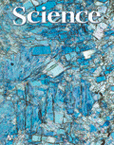导读:一个研究小组发现诺华公司一种被称为kartogenin的分子,在实验室研究中能够激励软骨细胞的发育,预示着该分子有望成为一种新的实验性关节炎药物。目前,该研究小组已对kartogenin提交了专利申请。

2012年4月9日,一组来自顶尖科学机构的研究小组对22000种分子进行了高通量机器人筛选试验( a robotic screening test),最终发现诺华公司一种被称为kartogenin的分子,在实验室研究中能够激励软骨细胞的发育,预示着该分子有望成为一种新的实验性关节炎药物。
在发表于《科学》(Science)的文章中,研究人员兴奋地看到,kartogenin提供了一种新的软骨细胞供应方式,来修复受损的关节。但科学家们也提醒称不要热情过头,因为对于任何一种新的关节炎药物,都需要开展漫长的临床研究。
"我们发现,这种分子能够激励关节上已有的干细胞分化成软骨细胞,"位于圣地亚哥的诺华研究基金会基因组研究所研究员Kristen Jlhnson告诉彭博社记者。"我们对kartogenin生物学性质的发现非常兴奋,这是一种靶向干细胞的新方法,不过,该药物发现还处于早期的阶段。"
目前,该研究小组已对kartogenin提交了专利申请。

A Stem Cell–Based Approach to Cartilage Repair
Kristen Johnson, Shoutian Zhu, Matthew S. Tremblay, Joshua N. Payette, Jianing Wang, Laure C. Bouchez, Shelly Meeusen, Alana Althage, Charles Y. Cho, Xu Wu, Peter G. Schultz
Osteoarthritis (OA) is a degenerative joint disease that involves destruction of articular cartilage and eventually leads to disability. Molecules that promote the selective differentiation of multipotent mesenchymal stem cells (MSCs) into chondrocytes may stimulate the repair of damaged cartilage. Using an image-based, high-throughput screen, we identified the small molecule kartogenin, which promotes chondrocyte differentiation (EC50 = 100 nM), shows chondroprotective effects in vitro, and is efficacious in two OA animal models. Kartogenin binds filamin A, disrupts its interaction with the transcription factor CBFβ, and induces chondrogenesis by regulating the CBFβ-RUNX1 transcriptional program. This work provides new insights into the control of chondrogenesis that may ultimately lead to a stem cell–based therapy for osteoarthritis.
文献链接:








